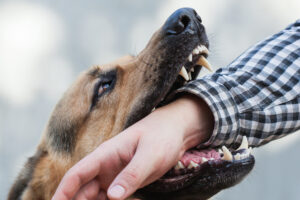Dog Bite Injury
If you have suffered Dog Bite Injury you should contact your local animal hospital immediately. If the bite was serious, you might need a rabies vaccination or a series of shots over a two-week period. In some cases, you may also need antibiotics for seven to fourteen days, and a follow-up appointment will be needed in one to three days. The next step is to identify the dog owner and photograph the bite wound to prove it’s not your own.
In 10 to 15% of dog bites, an infection develops. This is due to bacteria in the dog’s mouth and skin germs. You should clean the wound to prevent infection, but it is a good idea to see a medical professional if the wound becomes infected or if it appears to be inflamed. A doctor will clean the wound and remove any dead tissues to avoid further infection. You should also get a second opinion if you have any underlying medical conditions that could make the wound worse.
Infected dog bites tend to result in lacerations, avulsions, and crush injuries. The bite force of a dog can be as high as 450 pounds per square inch. Symptomatic treatment of a dog bite injury depends on the location of the wound. Most animal bites develop an infection in the bite site, making it important to seek medical attention as soon as possible. Moreover, extensive dog bite wounds are susceptible to rabies and tetanus, which complicate care and recovery.
Department of Health and Mental Hygiene collects data on dog bite injuries. They are reported by phone, fax, and online. They include information such as date of bite, type of dog, age, sex, and whether the dog was neutered. In addition, you can also report the incident by zip code and borough. The records date back to 2012, but trends are not remarkably different after that.
As with other types of injuries, avulsions can cause permanent scarring and reduced function. Treatment may include skin grafts or laser therapy, but extensive scarring may be debilitating. In these cases, you may need surgery to restore normal function to the bitten area. If you have suffered a dog bite injury, you should consult with a qualified dog bite attorney to seek compensation for the injuries. There is no reason to live with a dog that has caused you pain and suffering.
While a dog bite injury is often self-healing, it is still recommended that you see a doctor to get medical treatment for your wound. The infection risk is greatest for people with diabetes or immunocompromised states. The first step in treating a dog bite injury is applying antibiotic ointment to the wound. You should also make sure that you know the owner of the dog and whether it has any vaccinations.
A lawyer will evaluate your claim and work with you to maximize your compensation. If the dog bite injury is severe, you may be entitled to a large amount of compensation. For example, you may be able to receive compensation for your medical expenses, lost wages, rehabilitation expenses, and pain and suffering. However, you should act quickly to file your claim. Generally, you have three years from the date of the bite to file a lawsuit for dog bite injury damages.
The cause of the dog bite injury is not always immediately obvious. Some studies suggest that the victim’s age and gender are factors. People aged five to nine are more likely to be the victim of a dog bite injury than individuals of other age groups. However, there are certain breeds of dogs that are known to be more aggressive towards children. If a dog attacks a child, it’s vital to seek medical attention right away.
A recent study found that children aged under five were the most likely to be bitten by a dog. However, over an 11-year period, the rate of dog bite injuries did not decrease. However, the length of stay in hospital increases with age, with half of those over 75s being hospitalized for eight days or more. Moreover, emergency department surveillance showed that 66% of dog bite victims were bitten while at home.
